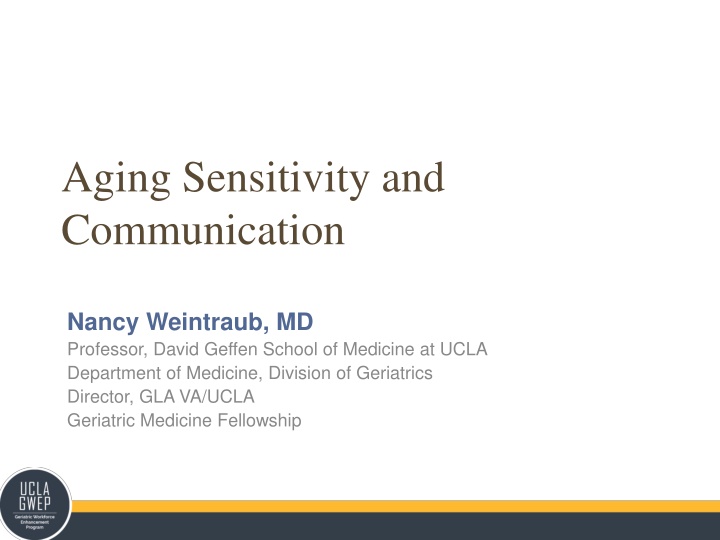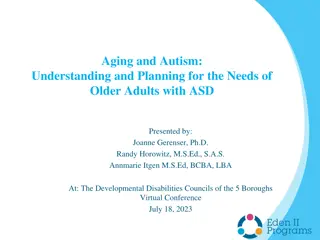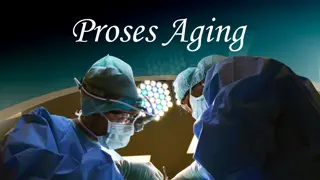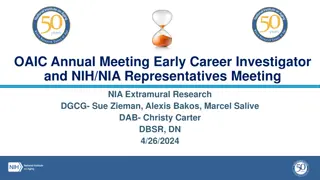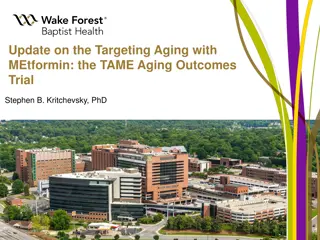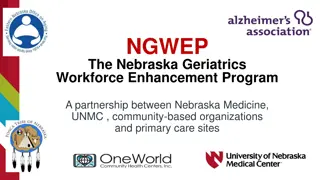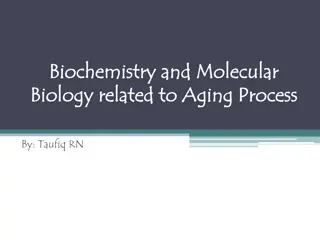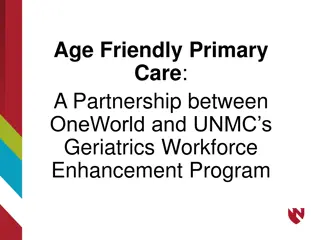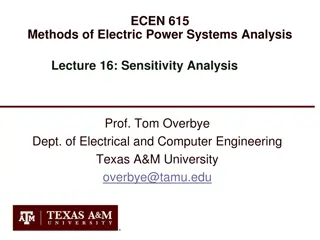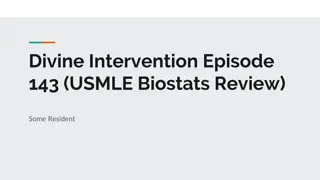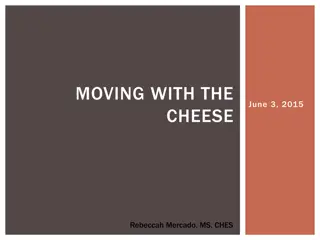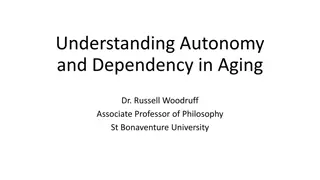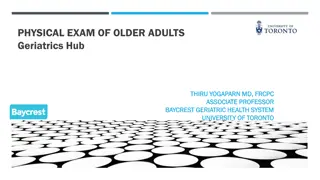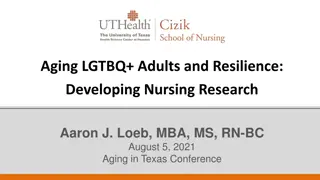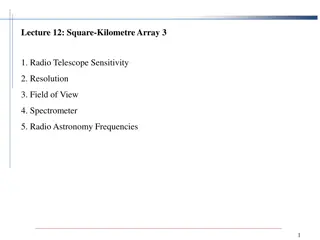Insights on Aging, Sensitivity, and Communication in Geriatrics
Delve into the world of geriatrics with insights on aging, sensitivity, and communication from Dr. Nancy Weintraub. Explore the impacts of aging on health, susceptibility to conditions, and the growing population of seniors. Learn about disabilities, disease prevalence, and the importance of addressing geriatric care in medical education.
Download Presentation

Please find below an Image/Link to download the presentation.
The content on the website is provided AS IS for your information and personal use only. It may not be sold, licensed, or shared on other websites without obtaining consent from the author.If you encounter any issues during the download, it is possible that the publisher has removed the file from their server.
You are allowed to download the files provided on this website for personal or commercial use, subject to the condition that they are used lawfully. All files are the property of their respective owners.
The content on the website is provided AS IS for your information and personal use only. It may not be sold, licensed, or shared on other websites without obtaining consent from the author.
E N D
Presentation Transcript
Aging Sensitivity and Communication Nancy Weintraub, MD Professor, David Geffen School of Medicine at UCLA Department of Medicine, Division of Geriatrics Director, GLA VA/UCLA Geriatric Medicine Fellowship
DISCLOSURES None of the faculty, planners, speakers, providers nor CME committee has any relevant financial relationships with commercial interest There is no commercial support for this CME activity
Ice Breaker How well do you know your seniors?
What We Know About Aging Is not a disease Occurs at different rates Increases susceptibility to many conditions
Age Bands 37.16 % 43.99% 18.85% 65 - 74 75 - 84 85+
Why we do what we do By 2030, 20% of US population > age 65 Group of people over age 85 is the fastest growing segment of the population By 2030, for the first time the population of people over age 65 will be > than those under age 5 for the first time
Implications Fact: 1/2 of all Americans 65+ have some type disability; 1/3 of those 65+ have severe disabilities Fact: Disease of the oldest old 85+ incidence increasing; 63% unable to manage basic ADLs; 47% have dementia Fact: Depression recurrence rates are as high as 40% Fact: Falls affect 1/3 of Americans 60+
Implications Fact: Hospital admits due to adverse drug reactions is six times greater than the general population Fact: 70% of people over 85 have low health literacy; 43% of 65 and older have high school or less education Fact: Medical schools - 112 of 126 don t require a single course in geriatrics
Medical Conditions of the Eye Cataracts - Clouding of the lens Glaucoma - Loss of peripheral or side vision
Medical Conditions of the Eye Macular Degeneration - Loss of central or straight ahead vision Diabetic Retinopathy - Blurring of central vision to blindness
Common Changes in Vision Decrease in sharpness of vision (acuity) Decrease in ability to judge distances Decrease in ability to discriminate between certain colors Decrease in ability to function in low light levels and adapt to dark Decrease in ability to adapt to glare
Types of Hearing Loss Conductive Sound waves are not transmitted to inner ear Presbycusis Loss of high frequency sounds (most common)
Helpful Tips Vision Use color contrast in print materials Control glare; have adequate lighting Keep statements / questions simple (no multiple choice) Provide written materials at appropriate literacy to reinforce verbal information; use audio/visual support when available Use large print minimum 12 point font
Helpful Tips Hearing Slow down, lower pitch, enunciate Reduce background noise Get person s attention before speaking Memory impairment / literacy Speak slowly and clearly Involve friends / family
Senior Sensitivity Means Looking for clues to an elder s cognitive and physical limitations Remembering that seniors cannot change their impairment we must adapt our processes to them Respecting members limitations and abilities Being patient, probing, listening carefully and using empathy statements Promoting independence Asking yourself if your work processes pass the senior sensitivity test
